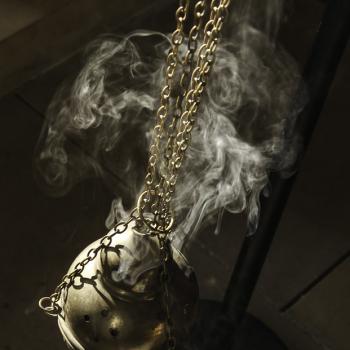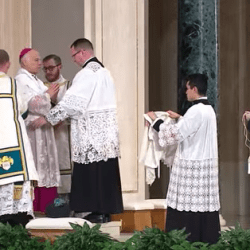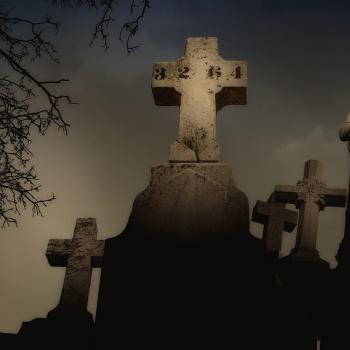A lot of secular media are beginning to report on the new Mass translation — and here’s one report with some reaction and analysis from Pittsburgh that notes an effort to have the new missal delayed:
Catholics in English-speaking countries will begin using a new translation of the Mass next month with language more formal and closer to the original Latin, but the change is sparking protest.
“We probably won’t face changes of this size in our lifetime,” said Michael Aquilina of Bridgeville, who has written more than 30 books about Catholic history, doctrine and devotion.
The new translation will be used beginning Nov. 27, the first Sunday of Advent, the start of the liturgical year in the Catholic church. The Mass is the church’s central form of worship.
“We feel confident that our members are well prepared,” said the Rev. Brian Noel, a parochial vicar at St. Bernard Parish in Mt. Lebanon, where church members have been readying for the changes since August.
“Change is always difficult,” Agnel DeSilva, who volunteers as a Eucharistic minister there, said he expects some resistance. But these changes to the liturgy are good. The language is more precise,” he said.
More than 22,000 Catholics — including Sister of Divine Providence Rita M. Yeasted — have signed an online petition asking that the new translation be delayed. A group representing more than 400 of Ireland’s 4,500 priests has asked Irish bishops to postpone the introduction of the new English translation for at least another five years.
“Is this the most important thing the church has to do?” Yeasted said during a telephone interview. “Rome is burning and we’re saying my fiddle is a little out of tune.”
John L. Allen Jr., Vatican correspondent for the National Catholic Reporter and the author of two biographies of Pope Benedict XVI, expects some churchgoers to grumble.
“Then, a few years down the road most people won’t even remember it happened,” he said.
Allen said there have been small changes to the liturgy in other languages, but the revisions in English are the most extensive.
“That’s largely because a segment of the English-speaking Catholic world, with influence in the Vatican — generally, the more conservative segment — has long been unhappy with the translation. They see it as too “worldly” and too fast-and-loose with respect to the Latin original,” he said.












